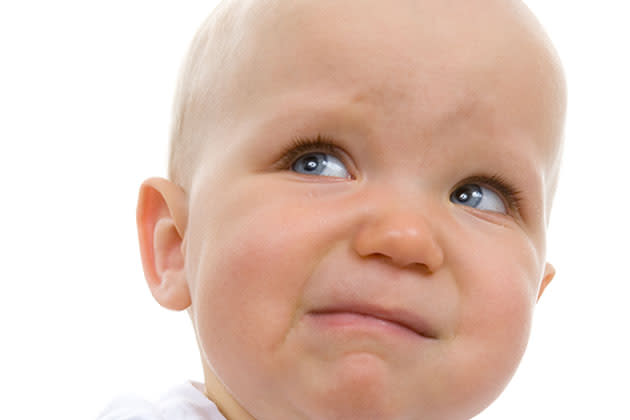 The Sideshow
The SideshowBabies can be mean-spirited: psychological study

Is your baby secretly plotting against you? Maybe. A study from the University of British Columbia's Centre for Infant Cognition found that babies have a bit of a mean streak when it comes to people they perceive as different.
In an experiment, babies were given a choice of snacks, either graham crackers or green beans (apparently some babies chose green beans--go figure). Researchers found that when babies study their surroundings, they show a lot of interest in people with different tastes and preferences.
The researchers conducted a puppet show for the subjects, ages 9 and 14 months. Puppet 1 "ate" the same snack that the baby chose, while Puppet 2 chose the other snack. Puppet 1 acted either friendly, indifferent, or aggressively toward Puppet 2.
Here's where it gets interesting. Researchers found that when given a choice of which puppet to play with afterward, "almost all the infants at both ages preferred the character who harmed the dissimilar puppet over the character who helped him," according to a press release from Psychological Science, where the research was published. Watch videos of the experiments.
Researcher Kiley Hamlin remarked, "The fact that infants show these social biases before they can even speak suggests that the biases aren’t solely the result of experiencing a divided social world, but are based in part on basic aspects of human social evaluation."
The reasons behind the babies' choices are still unknown, but Hamlin theorizes, "Infants might experience something like schadenfreude at the suffering of an individual they dislike. Or perhaps they recognize the alliances that are implied by social interactions, identifying an ‘enemy of their enemy’ (i.e., the harmer of a dissimilar puppet) as their friend."
Our conclusion: People need to stop reading "The Art of War" at bedtime.
